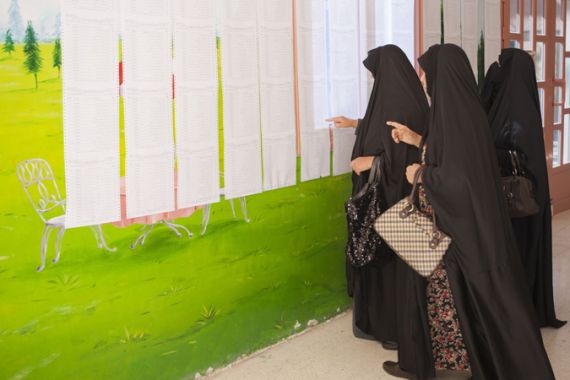Vote counting under way in Kuwait
Early results show Shias headed for big gains in parliamentary elections that was boycotted by opposition.

Vote counting is under way in Kuwait after a day of polling ended for a new parliament, the second ballot in ten months.
Members of Kuwait’s Shia minority are set to win about 15 seats of the 50-member parliament, their largest share ever, as the Sunni-dominated opposition boycotted the Saturday’s elections. Shias had held only seven seats in the previous parliament.
The first results are expected after midnight [21:00 GMT], as ballot papers in Kuwait are still counted manually.
The polls have been marked by sharp divisions between the ruling family-led government and an opposition boycotting the polls over a change to the electoral law.
Opposition groups, ranging from hardline Islamists to Western-leaning liberals, have bitterly denounced a decree in October by Kuwait’s emir to change the balloting system.
They claim it will make it easier for officials to influence the outcome.
Opposition supporters, numbering in the tens of thousands, took to the streets of Kuwait City on Friday in a peaceful demonstration calling on voters to stay home during the election day.
The opposition said only 26.7 percent of voters turned out, the lowest figure ever in the country’s parliamentary elections.
Electoral law amendments
Friday’s protests were among several staged against the government for unilaterally amending the electoral law.
In previous elections, voters were able to pick up to a maximum of four candidates; that number was reduced by the amendment to just one. Each of Kuwait’s five constituencies elects 10 legislators.
Analysts see little hope the election, the fifth since mid-2006, will bring political stability to the Gulf state.
Turnout is seen as the key test for the divisions within the country. The opposition had said it would deploy people to monitor the number of voters for fear the government may inflate the numbers.
None of the opposition figures is among the 306 hopefuls, including 13 women, contesting the 50 seats, and so the next parliament is expected to be entirely pro-government.
Of the 3.8 million people living in Kuwait, only 1.2 million are Kuwaiti citizens. Among these, just 422,000 are eligible to vote.
The voting age is 21 and servicemen in the police and army are banned from taking part in the ballot. Female voters make up 54 percent of the electorate.